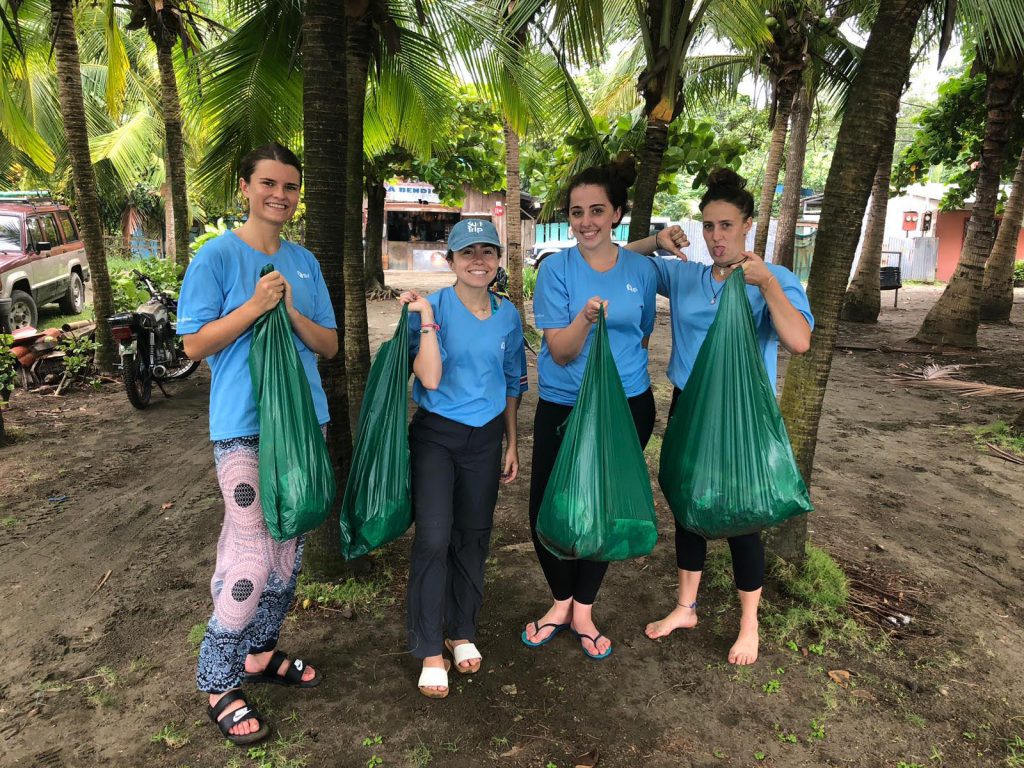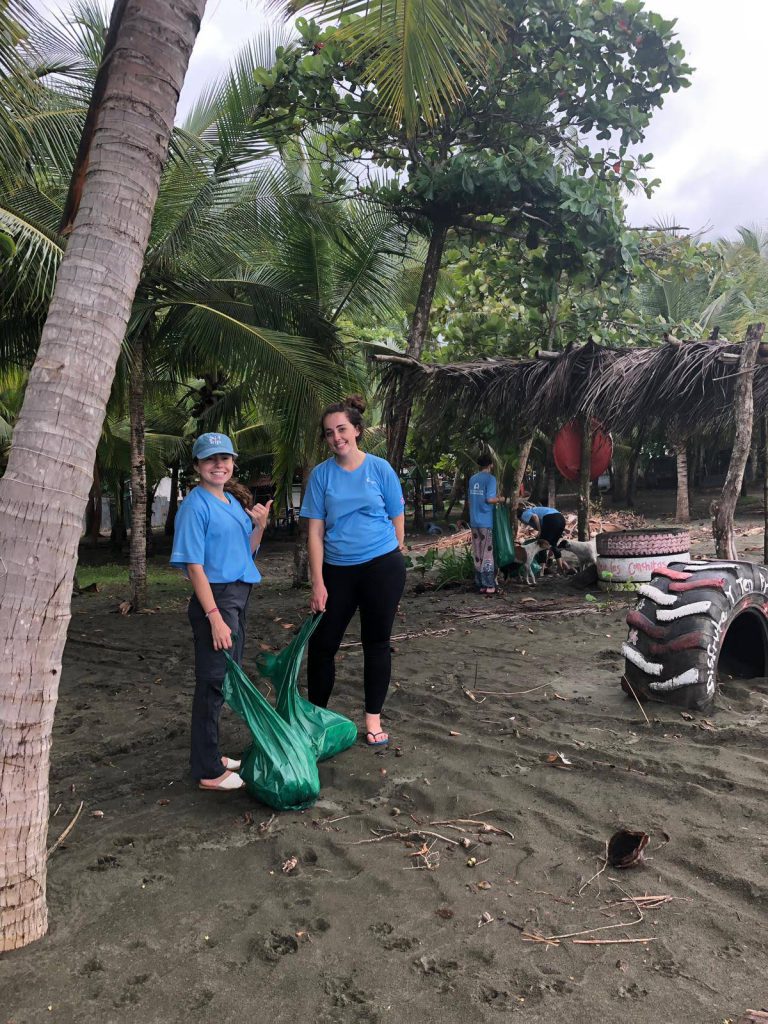Ocean Conservation – Cleaning up the beach in El Cocal, Costa Rica
By Ashlee Owings, | August 2019 | traveling with partner GVI
All it took was four young women, four hefty trash bags and a willingness to leave the beach of El Cocal, Costa Rica better than we had found it in order to collect roughly 30 pounds of waste in a mere half an hour on a free Friday afternoon. As I participated in this, I found everything from plastic bottles, plastic candy wrappers, plastic chip bags and various types of additional plastic items. I also found other wastes such as aluminum cans, glass bottles and Styrofoam-made items. This experience was eye opening to me, because I realized how much I took for granted how clean in comparison my neighborhoods and local beaches are back home in Southern California. This inspired me to further educate myself on pollution and sustainable living practices.

Plastic pollution and ocean conservation have always been on my radar and is something I care about deeply. However, coming to a foreign country and experiencing firsthand how much waste is produced by humans around the world was disheartening. California is by no means a perfect example of how to live sustainably, but we know that basic things such as littering is bad and recycling is good. In the town of El Cocal, however, they unfortunately don’t have the same resources and education that we do as Americans. El Cocal is a small, hidden, impoverished community, predominantly occupied by Nicaraguan refugees and poor Costa Ricans. It’s located next to Quepos in southwestern Costa Rica, but it’s separated by 50 meters of ocean, making it appear as though it’s an island. In order to cross over to the main town of Quepos, you must pay to take a short boat ride.

In most of the homes in El Cocal, there are no electricity, running water, cable or Internet. The roads are sand, and there is no trash pickup for the town so locals bury their trash in the sand, burn it or throw it outside, which ends up in the ocean because of how close they are to the shoreline. Children in the community run free while their parents are working two or three jobs to make ends meet. There is one school in this town, preschool through sixth grade, taught only four hours a day.
With all this in mind, it’s understandable how issues such as environmental conservation and ocean-pollution awareness are not priorities for people struggling just to live and support their families. This is where Export Hope’s Travel Partner, Global Vision International (GVI) comes in. Our teaching-English team made a decision to do a beach/town cleanup for El Cocal once a week on Fridays since classes aren’t held that day.
The children playing around the neighborhood would see us cleaning up the trash and would often stop and start helping us as well. Being an example is something that we can all be for each other, especially in our own neighborhoods.
This lesson of serving others and making a small difference is something I took with me back home and continue to hold onto.

